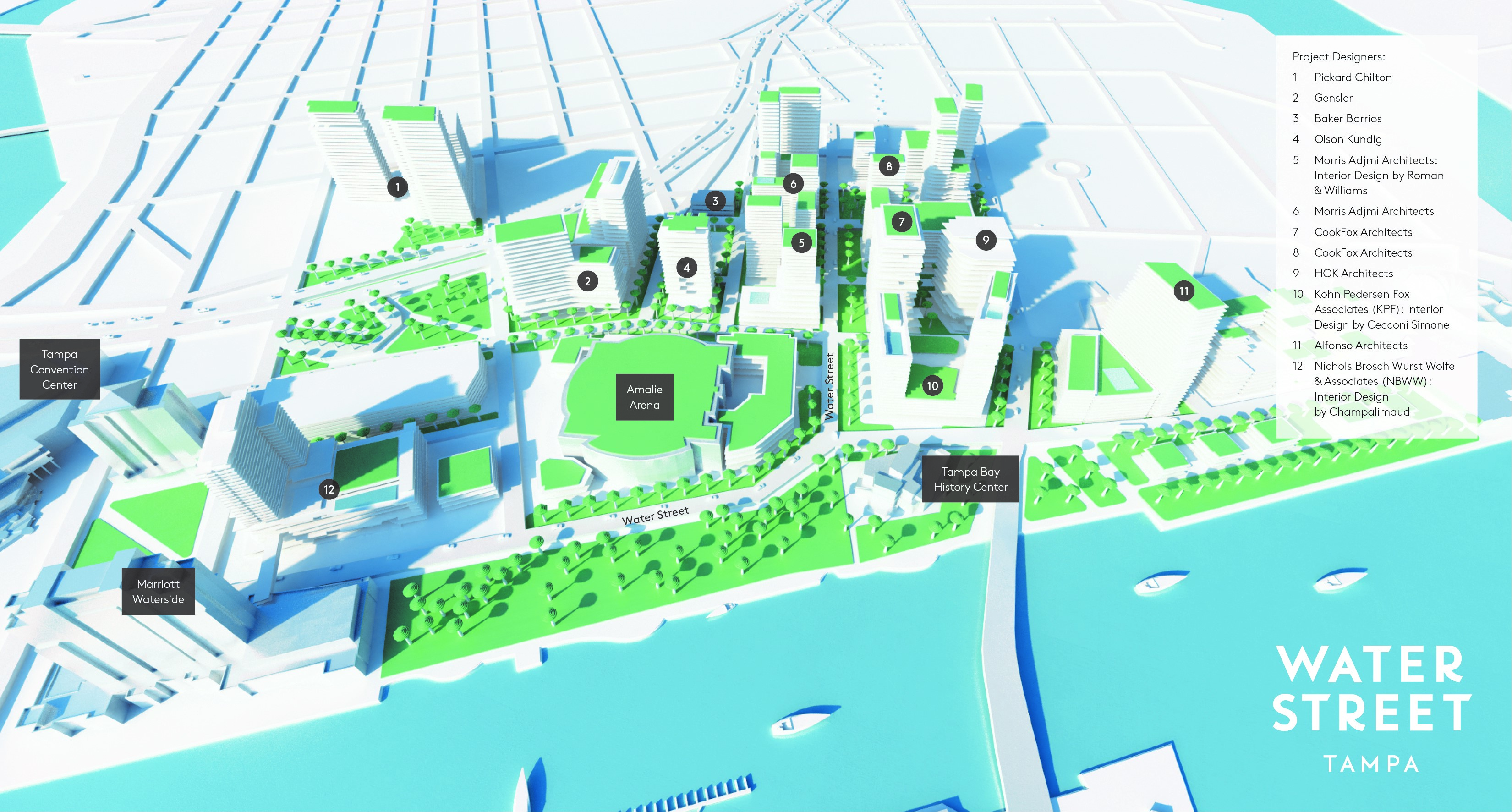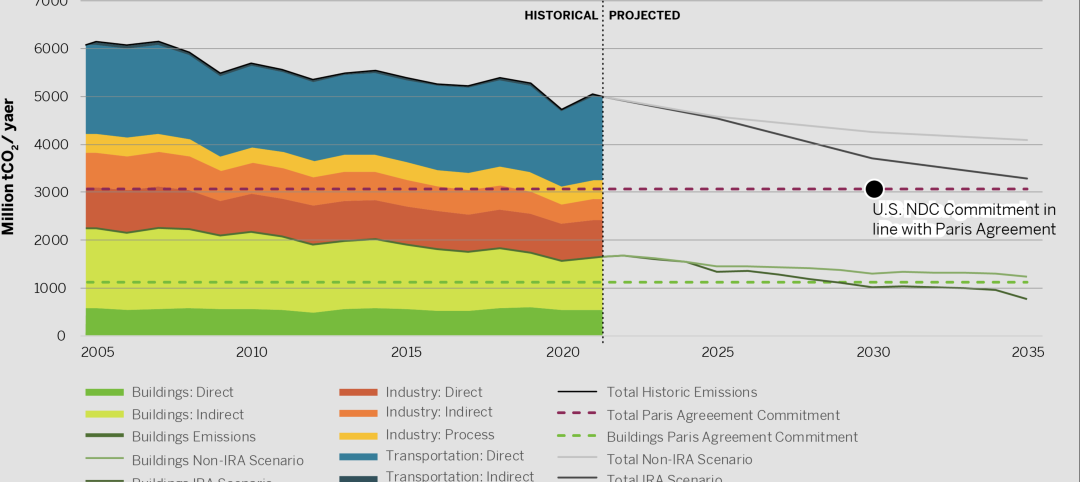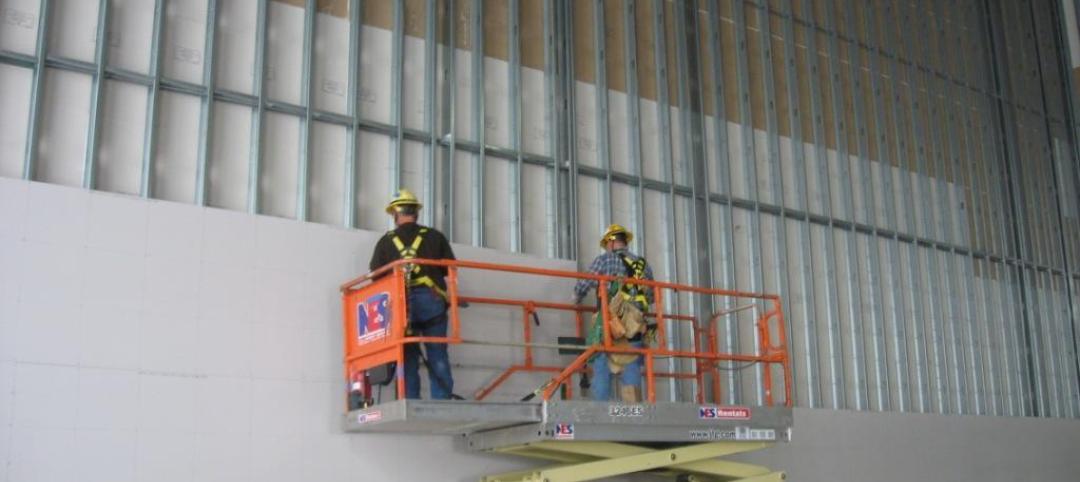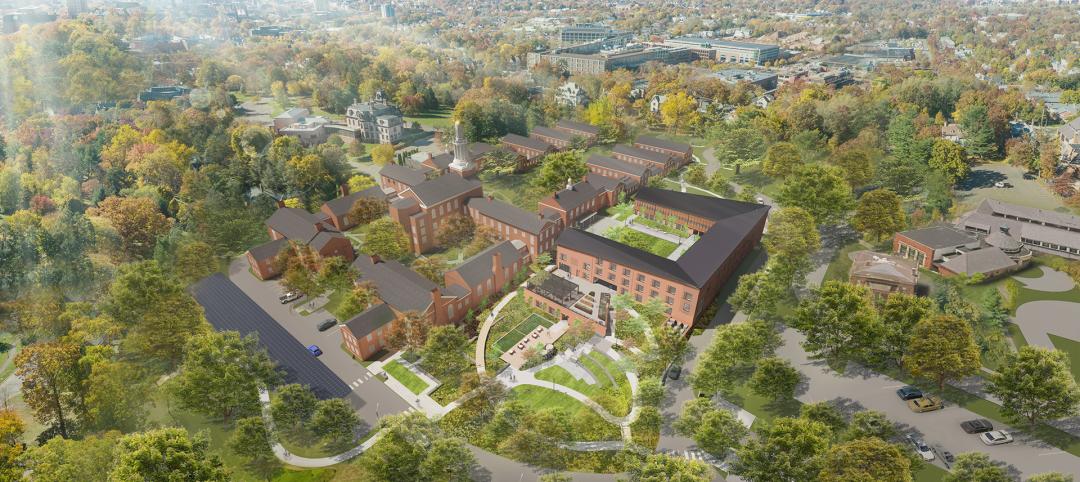After a summer of tumultuous and severe weather events that wreaked havoc on the Caribbean and the Southern United States, a certain segment of real estate and property managers still doesn’t see the value of incorporating resilience into their buildings or their operations.
That’s one of the key findings in Structure Tone’s second-annual Client Sustainability Report. The construction management firm polled a select group of 140 senior corporate real estate and facilities management professionals to gauge where sustainability comes into play for end users across the commercial real estate community.
Based on their responses, it would appear that “green building” is now mainstream. None of the respondents consider it a fad. More than three-fifths—62%—see LEED certification as a market differentiator, up nine percentage points from last year’s survey. And more than half of those polled agree that employees expect the buildings they work in to be LEED-certified.
Indeed, 45% of those polled said they would pay more to lease space in a green building. And 42% expressed concern about where their buildings rank in public energy disclosers.
“Last year there was a concern that when LEEDv4, a more stringent version of LEED, was implemented, many owners would simply stop pursuing certification. But our results show that’s simply not the case,” says Jennifer Taranto, LEED AP ID+C/BD+C, WELL AP, Structure Tone’s director of Sustainability.
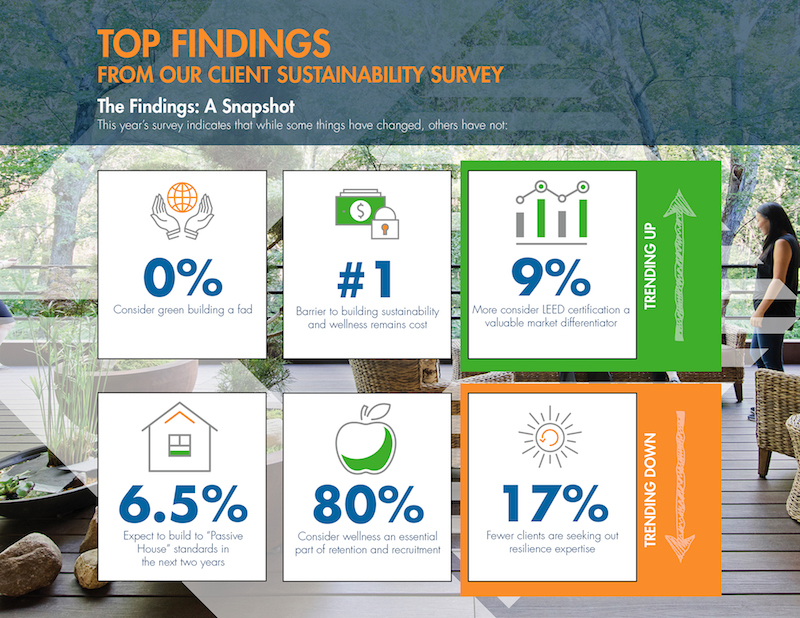
Sustainability is becoming mainstream, and LEED certification is still the gold standard in commercial real estate, according to Structure Tone's survey. Image: Structure Tone.
That being said, the No. 1 barrier to building green remains its cost for an overwhelming number of those polled. And there are still limits to how green the real estate and property management communities want to take their buildings. Only 11% of the survey respondents said their companies have policies that support progress toward Net-Zero Energy in the building sector. This is a slight downward movement from the previous year of 15%. “Surprisingly, 31% of respondents did not know if they have real estate in cities that have community-wide Net Zero goals,” Structure Tone reports.
Cost might also explain why the number of respondents who think resilience is important fell to 54%, from 61% last year. And 17% fewer respondents said they are seeking resilience expertise on their projects. (The survey was open to responses from March 1 through June 19, just months before Hurricanes Harvey, Irma, and Maria did their damage, and an 8.1-magnitude earthquake rocked Mexico City.)
Taranto tells BD+C that she was “surprised” by the lower responses about resilience. However, she also notes that the survey is in line with attitudes Structure Tone continues to encounter in the field from some clients that have yet to give resilience closer scrutiny.
Conversely, more real estate and property management professionals are embracing wellness as a standard for their buildings to pursue. More than 80% of those polled cited wellness as a relevant factor in recruiting and retaining employees. More than half of the respondents said they planned to seek expertise to devise wellness strategies for their buildings.
“Wellness is certainly coming to the forefront,” says Taranto.
Leading this charge is the International WELL Building Institute, which has developed wellness standards for buildings and communities. Water Street Tampa—a $3 billion mixed-use district under construction in Florida that BD+C reports on in a feature article about resilience in our October 2017 issue—on September 5 launched a pilot of the WELL Community Standard. This project, which when completed will have more than 9 million sf of commercial and residential space, is targeting to be the world’s first WELL-certified community.
One-quarter of respondents to Structure Tone’s survey said they were looking to do a WELL project within the next year.
In Structure Tone’s survey, 70% of the respondents work at companies with more than 1,000 employees. Two-thirds of those polled have square footage responsibilities that exceed 1 million sf. The top sector responses came from commercial office, data centers, healthcare, and pharma/life sciences.
Related Stories
Codes and Standards | Dec 18, 2023
ASHRAE releases guide on grid interactivity in the decarbonization process
A guide focusing on the critical role of grid interactivity in building decarbonization was recently published by ASHRAE. The Grid-Interactive Buildings for Decarbonization: Design and Operation Resource Guide provides information on maximizing carbon reduction through buildings’ interaction with the electric power grid.
75 Top Building Products | Dec 13, 2023
75 top building products for 2023
From a bladeless rooftop wind energy system, to a troffer light fixture with built-in continuous visible light disinfection, innovation is plentiful in Building Design+Construction's annual 75 Top Products report.
Codes and Standards | Dec 11, 2023
Washington state tries new approach to phase out fossil fuels in new construction
After pausing a heat pump mandate earlier this year after a federal court overturned Berkeley, Calif.’s ban on gas appliances in new buildings, Washington state enacted a new code provision that seems poised to achieve the same goal.
Green | Dec 11, 2023
U.S. has tools to meet commercial building sector decarbonization goals early
The U.S. has the tools to reduce commercial building-related emissions to reach target goals in 2029, earlier than what it committed to when it signed the Paris Agreement, according to a report by the U.S. Green Building Council.
Industry Research | Dec 9, 2023
Two new reports provide guidance for choosing healthier building products
The authors, Perkins&Will and the Healthy Building Network, home in on drywall, flooring, and insulation.The authors, Perkins&Will and the Healthy Building Network, home in on drywall, flooring, and insulation.
University Buildings | Dec 8, 2023
Yale University breaks ground on nation's largest Living Building student housing complex
A groundbreaking on Oct. 11 kicked off a project aiming to construct the largest Living Building Challenge-certified residence on a university campus. The Living Village, a 45,000 sf home for Yale University Divinity School graduate students, “will make an ecological statement about the need to build in harmony with the natural world while training students to become ‘apostles of the environment’,” according to Bruner/Cott, which is leading the design team that includes Höweler + Yoon Architecture and Andropogon Associates.
Industrial Facilities | Nov 14, 2023
Some AEC firms are plugging into EV charging market
Decentralized electrical distribution is broadening recharger installation to several building types.
Sustainability | Nov 1, 2023
Researchers create building air leakage detection system using a camera in real time
Researchers at the U.S. Department of Energy’s Oak Ridge National Laboratory have developed a system that uses a camera to detect air leakage from buildings in real time.
Sustainability | Nov 1, 2023
Tool identifies financial incentives for decarbonizing heavy industry, transportation projects
Rocky Mountain Institute (RMI) has released a tool to identify financial incentives to help developers, industrial companies, and investors find financial incentives for heavy industry and transport projects.
Codes and Standards | Oct 10, 2023
Green Seal will not certify any paints, coatings, floor care products containing PFAS
Green Seal will no longer certify any paints and coatings, floor care products, adhesives, and degreasers containing any per- and polyfluoroalkyl substances (PFAS), commonly called “forever chemicals.”


